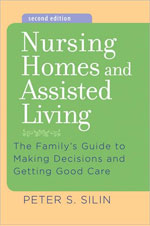When the Same Side of the Fence Looks Different
A client of mine was telling me about her family's background. They never got along, and now they are not seeing eye to eye on what is best for their brother. She is 78, her brother in care is 83, and the other brothers are 76 and 73. A month ago, she informs me, they got into an argument. She was so stressed from trying to be a long distance caregiver and explaining to her brothers what she was doing, that she blasted them both verbally, and hung up on them. It is harder because th these two younger brothers live in town. Although physically closer, they have never been as emotionally close to the brother in care as this woman and he were with each other.
"We just don't agree, " she told me, "We want different things."
I told he I thought that wasn't so. "I think you want the same thing--what is best for your brother. The problem is that you don't agree on what that is, and there is a long history between you all, and it is impacting on your trying to make a decision. But your goal is the same. You want what is best for him."
These are the issues that make caregiving difficult. Our histories, our patterns, our relationships, our birth order, our relationships with parents. Sometimes things are difficult because we can be overwhelmed by and run by our fears, by our guilt, or by other needs and circumstances. Sometimes sorting these out can be the hardest part of caregiving.
But, if they are sorted out, if that is what people want to do, they can be one of the gifts that come from the caregiving experience. So when you look back, as these people may, they could say to themselves, " that is one last gift our brother gave to all of us-- each other."




<< Home